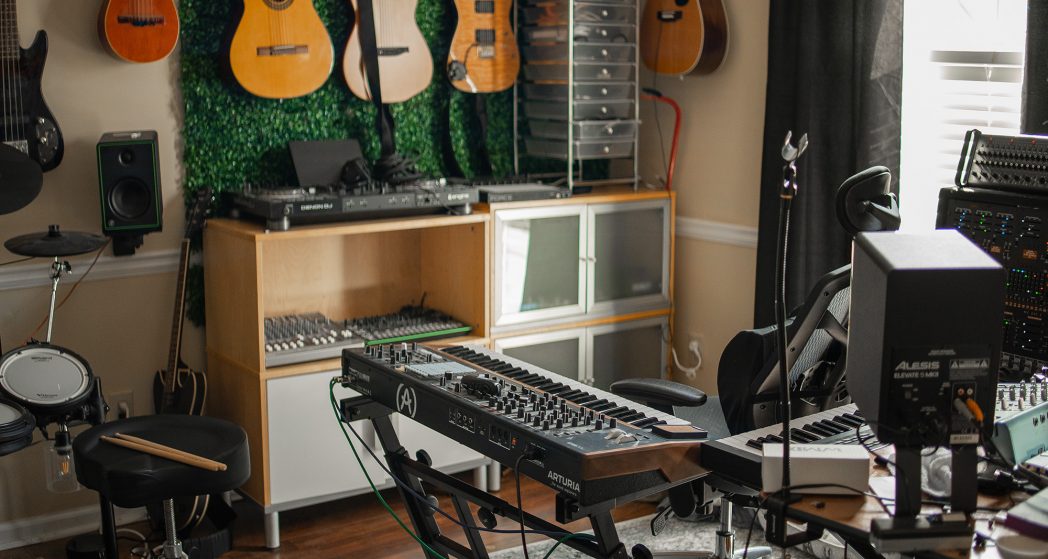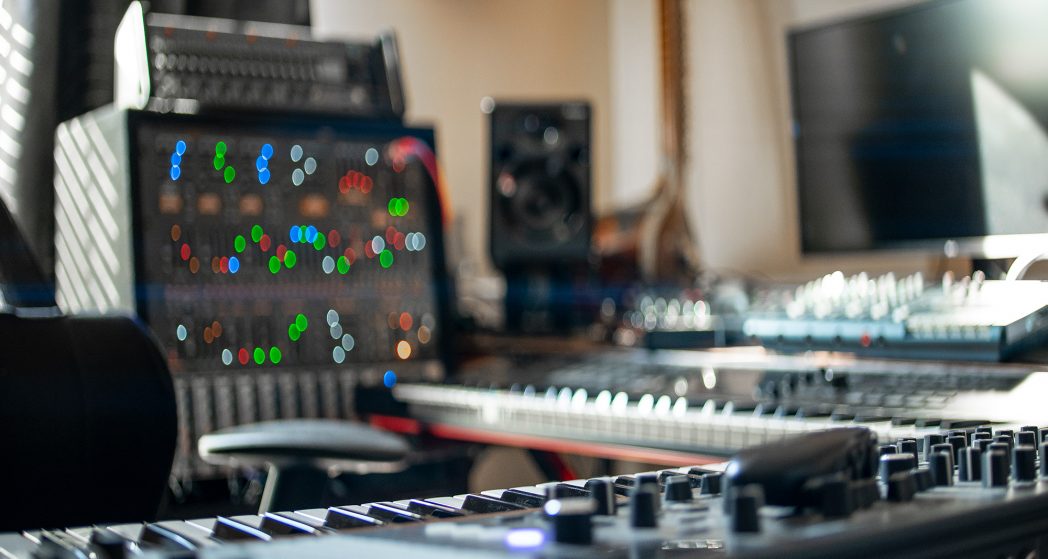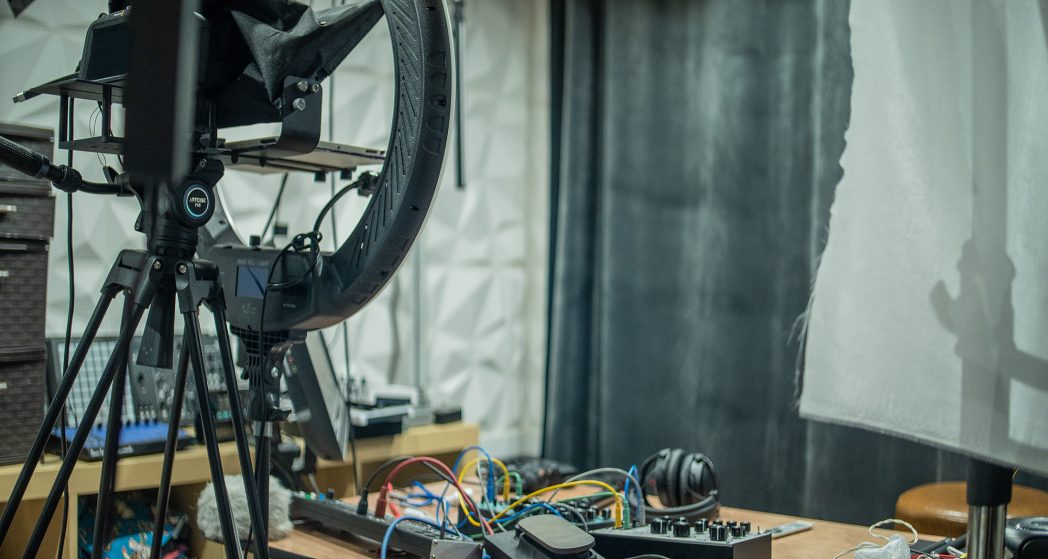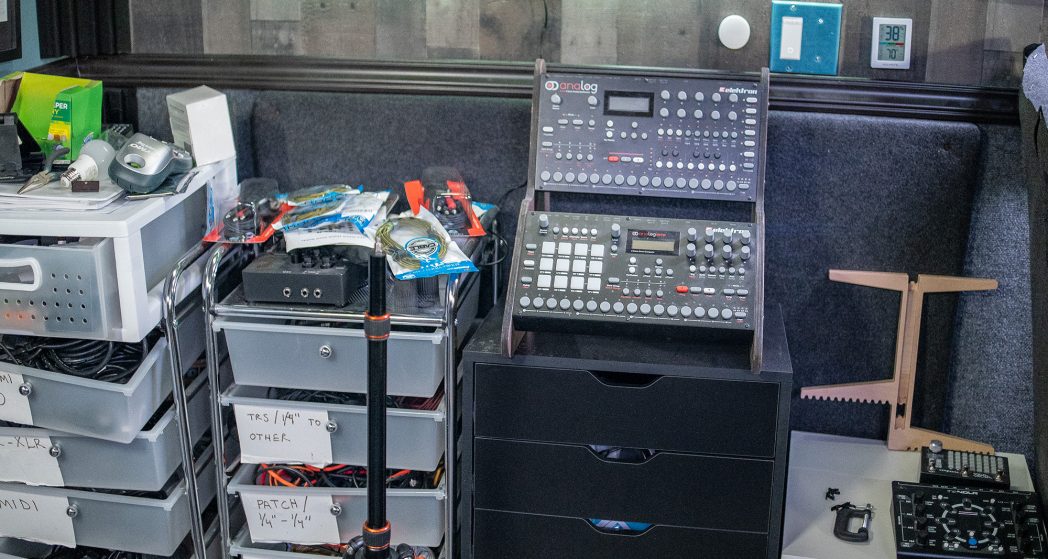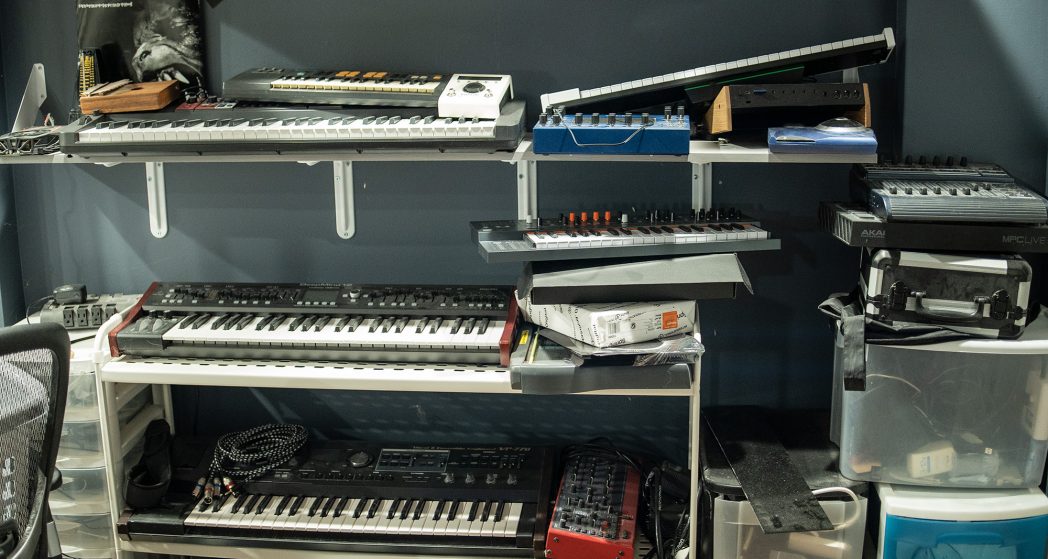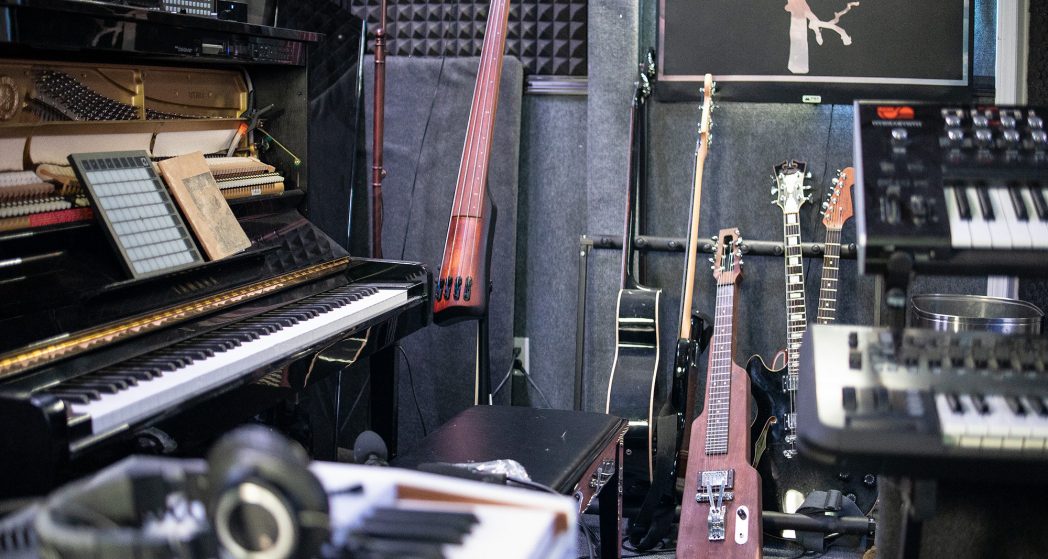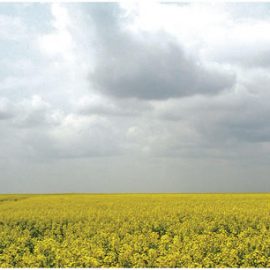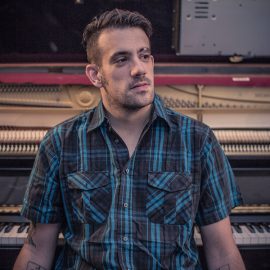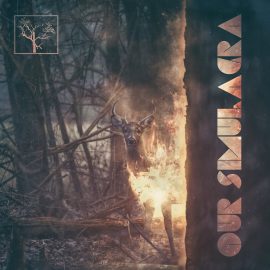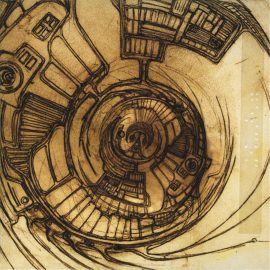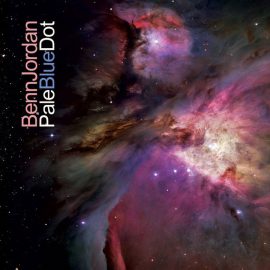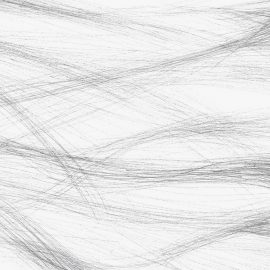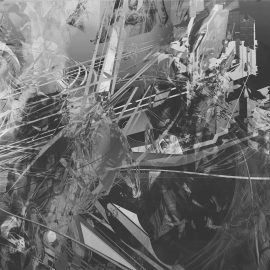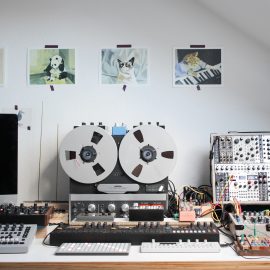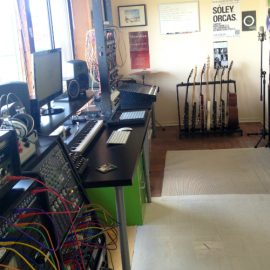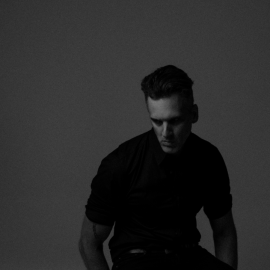Let’s start at the beginning. How did you come about making a decision to start your own YouTube channel?
When I was making Piety Of Ashes, I had just moved to Georgia and was incredibly reclusive. At one point, the only interaction I had with other people was picking up take-out or something like that. One day when getting my hair cut, I realized that I was developing a stutter and not really putting my sentences together very well in real-time conversations. So rather than just socializing, I decided to make “Benn And Gear”, where I’d review some of the music gear I liked and maybe, just maybe, get some for free.
Can you recall your very first struggles and frustrations?
Speaking to the camera or in general. But I also wanted to tackle that intensely. But at that point, I don’t think I ever read or watched any type of material on how to gain subscribers or grow a channel. I saw myself as a professional musician who also sometimes makes videos. It was purely a hobby, and if I got tired of making videos, then I’d not make one for a month or however long. At least until around 2020.
Was there ever a moment where you were going to just quit, and how did you overcome that?
Probably a few. In 2020 I had a lot of meeting with a firm that produces and funds content to sell to Netflix, Hulu, and so on. The money offered wasn’t great, but it was certainly better. But I couldn’t get past the idea of not owning 100% of my own content. Also, even shows on YouTube Premium are horribly managed and inefficient in comparison to an experienced DIY creator. Something felt wrong about it, and I realized that creative freedom was always the right choice, and YouTube offered me that. It didn’t take long for me to realize that I was wrong. I funded quite a few videos out of pocket that is probably, to this day, the most engaging content on my channel (Adventures in Ambience and Seeing Sound series). I got smacked very hard with the mysterious hand that is YouTube’s algorithm. It does a great job at showing people what they like watching, but a terrible job at allowing a creator to introduce a new style of content to those viewers. The videos absolutely tanked, and I realized that had I done them for a production company, they’d actually be seen by people on a subscription streaming service. It just felt like an enormous waste of money and time, so naturally, I considered winding things down.
What were some of the most rewarding moments so far?
This will sound weird without context, but being recognized by children. Some of my science content seems to wind up on their feed, and somehow the full-circle experience of knowing that I made them a little more curious about the world makes me really happy. Uli Behringer donating nearly a quarter of a million dollars was also mind-blowing. It made me feel like my cynicism was good for something other than making people feel worse about the world they live in. [I don’t want to assume on record that Uli did that as a direct response to my video, but Behringer certainly let me know it was done, and I honored my side of the deal by putting the 2400 rack behind me in my videos for an entire year. At the end of the day, I’m just very happy that so many children will have an opportunity to express themselves with soundwaves that transcend the quantification of language!]
Can you share some of the biggest lessons learned and how you improved and optimized in the last few years?
Subscribers don’t matter. In fact, at some point, they’re bad. A channel with a million subs telling you their personal take about a product or service is met with far more scepticism. More importantly, I stopped measuring the success of individual videos that much and realized that this is a marathon. It allows me to fund content I want to make that I realize will likely perform poorly with videos that I know will be suggested to people.
How much prep do you do for each episode?
It entirely depends on the video. The Outlaw Ocean video had close to a year of pre-production. The recent caving video was easily months in the making to be as safe as possible. Other videos will literally go on my project board on Monday and be uploaded Thursday.
How much equipment have you invested in getting you to the level where you are happy with the production today?
It’s hard to say because I’ve acquired so much that I rarely use. Anamorphic lenses, drones, 360 cameras, and so on. I could probably make 90% of my content with a Sony A7IV, 35mm 1.8 lens, and a pricey Sennheiser shotgun microphone. But I’d say I easily have spent $50,000 on production gear, software, or even location rentals.
Do you have other things on the radar that you are exploring regarding equipment and style?
I have a bin of VHS-C camcorders that I may use for a cross-country trip. I really love the feeling of recording short clips with them and just layering this collage of content that you can’t preview until you pop the tape into a VCR. For some reason, I have no interest in making 4k content. At least not with YouTube’s codec.
Could you tell us about your Patreon channel and how that is working?
I started it sheepishly at first. Part of me thought that if the channel couldn’t exist monetarily while maintaining the schedule and quality it had, then it was unsuccessful and should be shelved. Within a few months, there was a strong community on Discord that absolutely amazed me. The Patreon itself is simply a gateway that keeps trolls out. I do upload content to Patreon, but it’s slow and frankly under-featured for how much they take. I have a dedicated server and plan on eventually migrating my users there by having both Patreon and my own subscription site lending access to one another while sunsetting the Patreon and removing an unnecessary third party.
And what about your Discord server, and how does that all tie together?
The Discord is where it’s at. I had no idea how to use it at first, but a few members requested it. It’s such a genuinely amazing community that I’ve tried figuring out why. Like, what is the element that makes it so much more supportive, informative, and useful than Facebook or Reddit? Maybe things like that just get worse as they scale up.
Do you ever feel internal pressure to release the content for your channel and then for Patreon? How do you work through that?
Nope. Almost never. The vast majority of the Patreon members just openly want me to do whatever I do. A lot of times, I’ll buy game licenses, set up a server, and we’ll all play something. And naturally, people can keep the games. For a while, I tried to make it a net-positive to be a member of my Patreon by doing stream features of the software in exchange for Patreon-exclusive coupon codes and giveaways. It DID work, but it also wasn’t really necessary. I think I just keep trying to make it more of a value when the reason the majority of them are members is just to support the content. I try to increase “rewards”, but it seems like they just want to support my work, which is incredibly warming. It acts as a compass when I feel like I might be in over my head or just completely hyperbolic about certain topics.
What is the YouTube community like? What is the competition if there is such a thing?
It’s less unified than I’d prefer it to be. A few channels demand exclusive gear features and stuff to try to monopolize that space for a period of time. There can be fierce competition, even among channels that are friendly with one another, but very early on, I told myself that whenever I felt competitive, then I’d just see that as a sign that I need to be more unique because I’m not offering anything that isn’t already there, and therefore potentially wasting my own and my viewer’s time. Additionally, there have been some channels that have made content with the purpose of drumming up controversy or trying to get me to defend myself or address them in a video. That makes me think that the space is getting a little bit more desperate or overcrowded. Perhaps with the component shortage, there are simply more talking heads than products at the moment.
Would you say that having a “popular” channel on YouTube can be a good source of income? And what would “popular” even mean?
I think it is if you’re extremely motivated. But then again, so is starting a landscaping business or virtually anything you can think of. If I’m to be candid, I think a lot of creators try to cash out a bit too early. I see channels in their first year making sponsored content, and I personally think that’s terrible for future engagement and doesn’t work in your favor if you continue to grow. It might be better to look at your channel’s life as if you have a final retirement/liquidation stage where you make partnered content with brands or services that you use and/or trust after you’ve burned through most of your own ideas.
So can you summarize the risk vs reward or maybe even return on your investment for us?
This week is a great time to answer that question, as I’m 12 days into 2023 and about $10,000 in the red on the channel. Travel accommodations, odd novelty microphones and electronic components for a video regarding acoustic physics stuff, and my last Spotify video required a few attorney meetings to make sure I wouldn’t be litigated into oblivion. Also, motion capture suits, biomechanics software licenses, and simulation software licenses. I’d say the risk is very high for me, but I also don’t think it has to be. I could probably make videos in the studio and get the same amount of views. I guess I just don’t see a point in all of this unless I’m learning and exploring new things. More formally answered, I’d say that if you expect to profit in the first 2-3 years, YouTube is not for you. I have not made a personal profit, but that’s because I’m focused on growth and making content that I enjoy. I haven’t really intended on making a profit yet, either. The income gets bigger and bigger, and so do the budgets. The few personal expenses I have that aren’t related to work are covered by private research gigs or music royalty income.
What advice would you give to someone who is trying to kick off their own channel these days?
Similar to music: Keep creating and make sure that the majority of your time spent making content is something you love doing. Don’t worry about what other channels are doing or what psychotically angry people are saying in the comments. Put all that energy into creating. Also, something that has helped me out in the last few months, any time I say “YouTube Algorithm”, I replace the term with “the majority of YouTube viewers”, and it usually helps me understand things a lot better.
From what I’m guessing, you have an infinite amount of time to work on so many different things and deliver at such top quality. How do you really do it all? You really don’t sleep, do you?
I’m currently sleeping from 3am – 7am. I also only take cold showers. I like it this way, but I don’t recommend it.
What are your plans for the channel in 2023?
I’ve only allowed myself to plan up until the end of April for now. A lot of sound recording, science, and off-topic content. I also plan on having a trial run of a decentralized music streaming server up and running, with the initial library being my own music and all of the content my Discord community has submitted for the monthly songwriting challenges. Oh! And I’m speaking at NAMM about the future of the music industry, which should be spicy.
That’s a great question. Looking back, I’m extremely happy that I started the channel because I’ve always been a fan of trying to separate “work” from “The Flashbulb”. Years ago, it was ad and television composing that allowed me to truly not care about what the public thought of my albums or try to appeal to a particular trend or genre. I feel like with the way composing budgets have gone, I’d be working a lot more for a lot less and having no time to make music. Then with COVID-19 on top of things making touring so much more difficult both during and after, I don’t think I could have had a better thing to fall back on than creating content for people all of a sudden not going to the office or bars. Finally, having a relationship with the companies that make the tools I use for music has allowed me to have an influence on some of those tools, which not only makes music-making more efficient and fun but makes me feel like a more embedded part of the community.
